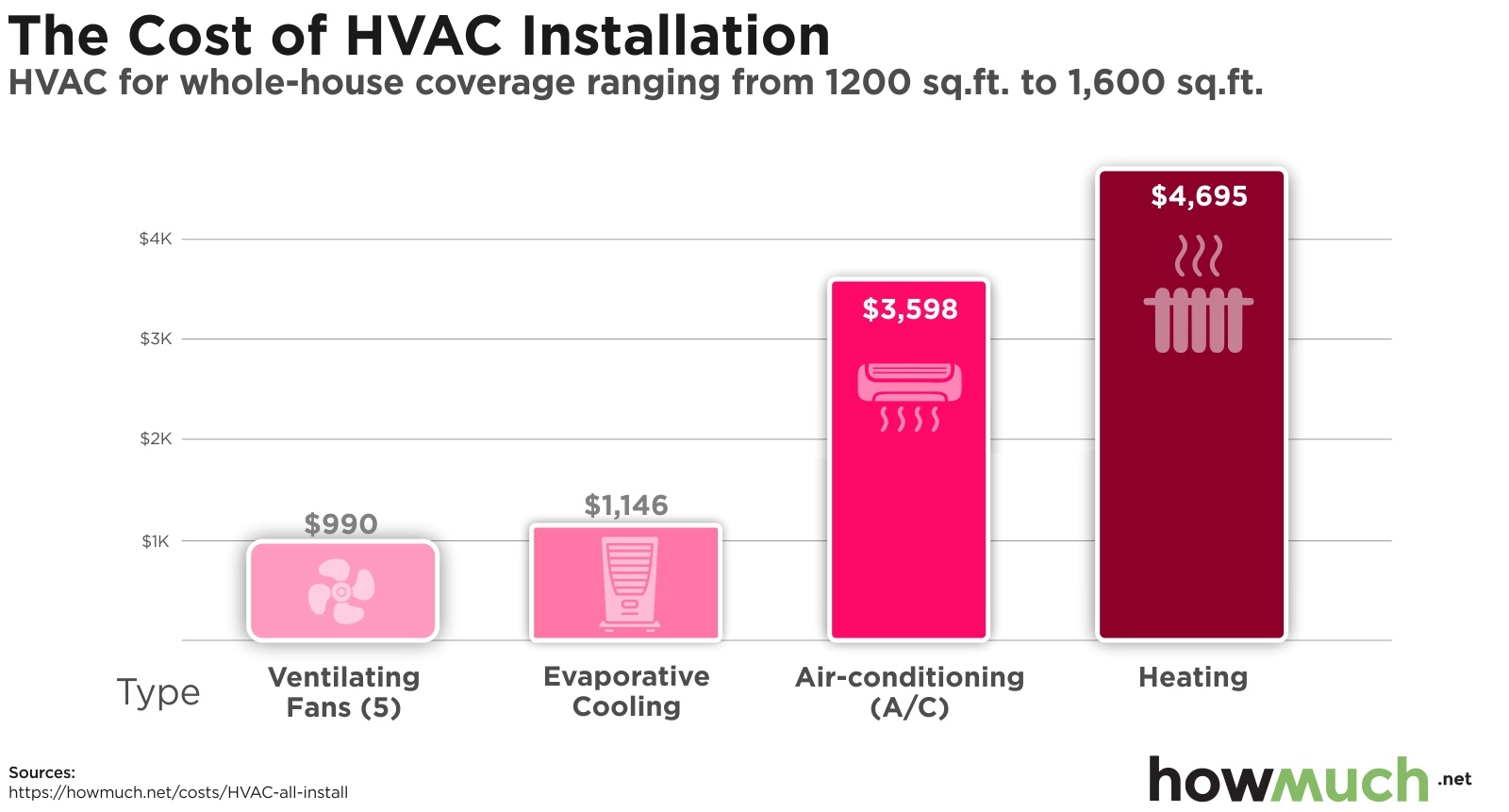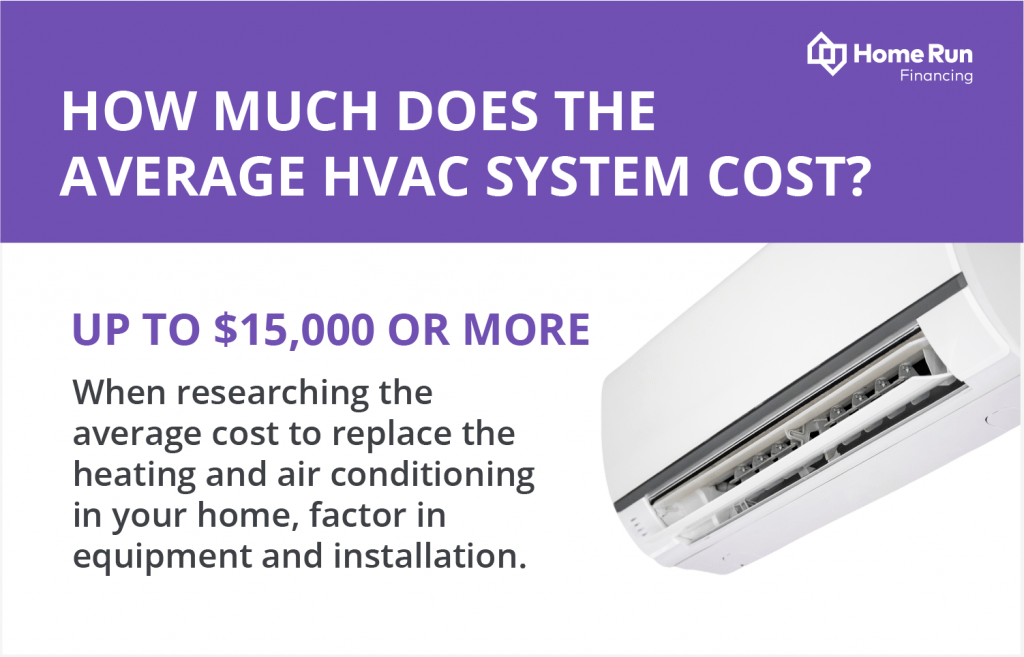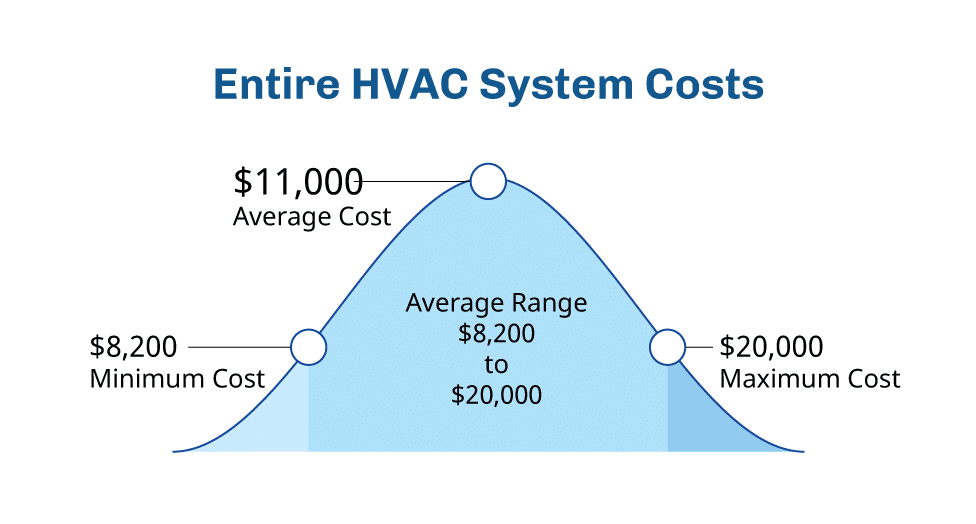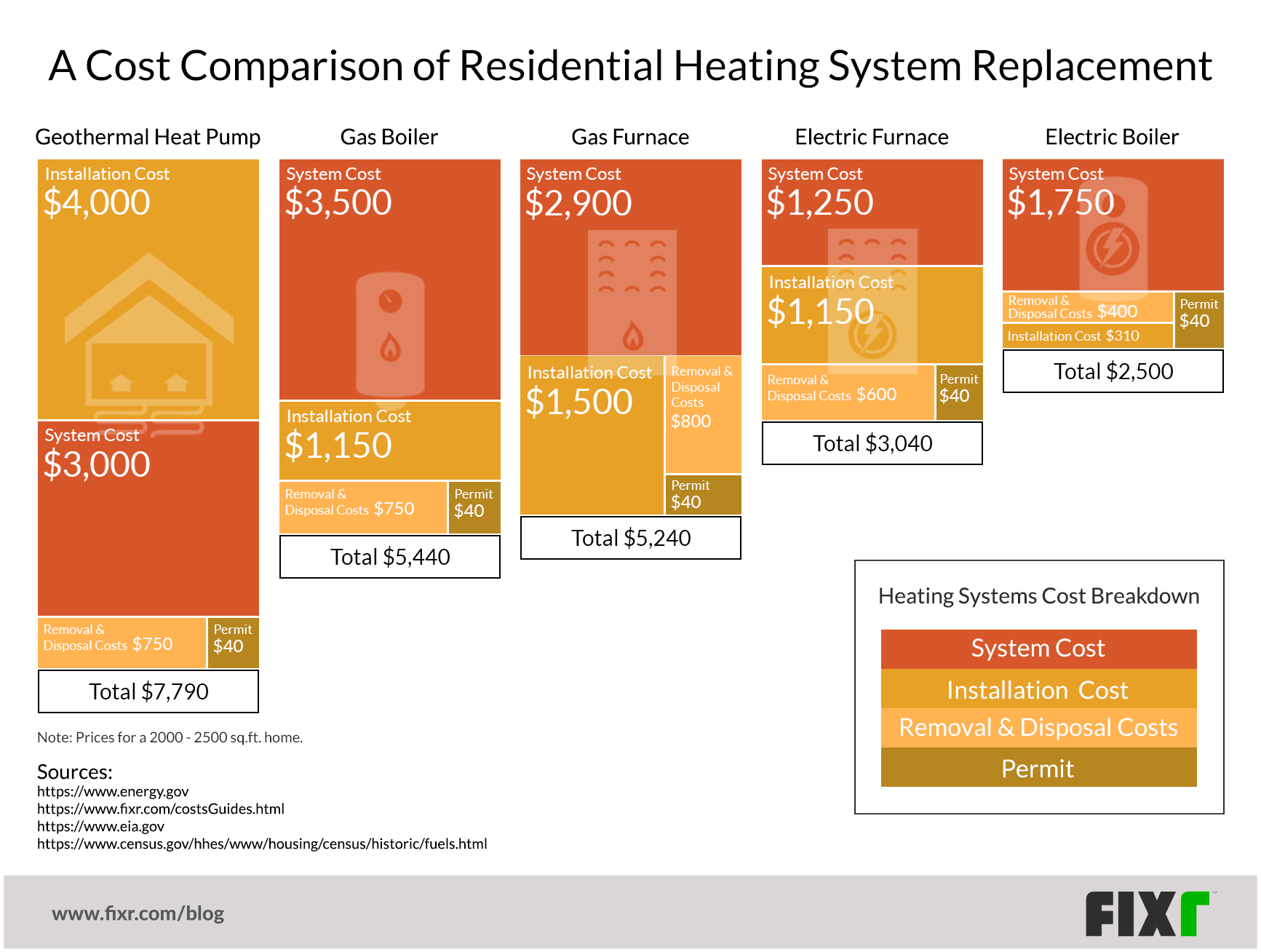Average Cost For Hvac System Replacement

Nobody wants to think about their HVAC system failing, especially when it comes to replacement costs. Facing a broken air conditioner or furnace can be incredibly stressful, not only because of the discomfort but also due to the potential financial burden. This article aims to demystify the process of HVAC system replacement, giving you a better understanding of the costs involved and helping you make informed decisions. We'll break down the factors influencing price, explore average costs, and offer tips for managing this significant home expense.
Understanding the Factors Influencing HVAC Replacement Costs
The cost of replacing an HVAC system isn't a fixed number. It depends on a variety of factors, making it crucial to understand them before getting quotes. Let's look at the key elements that affect the final price:
- System Type and Size: The type of system you need (air conditioner, furnace, heat pump, or a combination) greatly impacts the cost. Larger homes require larger, more powerful units, which naturally cost more.
- Efficiency Rating (SEER and AFUE): Higher efficiency units (indicated by SEER for cooling and AFUE for heating) have a higher upfront cost but can save you money on energy bills in the long run. Consider the long-term cost savings when evaluating different efficiency ratings.
- Brand Reputation and Features: Well-known, reputable brands often come with a higher price tag, but they also tend to offer better reliability and warranties. Advanced features like smart thermostats or zoning systems can also increase the cost.
- Installation Complexity: The complexity of the installation can significantly affect labor costs. Factors like the existing ductwork condition, accessibility to the unit, and the need for modifications can all increase labor expenses.
- Local Labor Costs: Labor rates vary depending on your location. Metropolitan areas typically have higher labor costs than rural areas.
- Permits and Inspections: Most municipalities require permits and inspections for HVAC system replacements. These fees add to the overall cost.
- Ductwork: Replacing or repairing ductwork can increase the price of HVAC replacement; it's important to take ductwork into consideration with age of systems and or any renovations.
Average Costs for HVAC System Replacement
Now, let's delve into the average costs you can expect for replacing different types of HVAC systems. Keep in mind that these are just averages, and actual costs can vary based on the factors mentioned above.
Air Conditioner Replacement Costs
Replacing an air conditioner typically costs between $3,000 and $7,000, including installation. This range can vary depending on the size and efficiency of the unit. Here's a more detailed breakdown:
- Small AC Unit (1.5-2 tons): $3,000 - $4,500
- Medium AC Unit (2.5-3.5 tons): $4,000 - $6,000
- Large AC Unit (4-5 tons): $5,000 - $7,000
Furnace Replacement Costs
Furnace replacement costs generally range from $2,000 to $6,000, including installation. The price depends on the type of furnace (gas, electric, or oil) and its AFUE rating.
- Gas Furnace: $3,000 - $6,000
- Electric Furnace: $2,000 - $5,000
Heat Pump Replacement Costs
Heat pumps, which provide both heating and cooling, typically cost between $4,000 and $8,000 to replace, including installation. The cost depends on the size, efficiency (SEER and HSPF ratings), and whether it's a single-stage, two-stage, or variable-speed unit.
- Standard Heat Pump: $4,000 - $6,000
- High-Efficiency Heat Pump: $6,000 - $8,000
Complete HVAC System Replacement (Furnace and AC)
If you need to replace both your furnace and air conditioner at the same time, the cost can range from $5,000 to $12,000 or more. This is a significant investment, but it can also be a good opportunity to upgrade to a more efficient and reliable system.
Important Note: These are just average costs. To get an accurate estimate for your specific situation, it's essential to get quotes from multiple HVAC contractors in your area.
Tips for Managing HVAC Replacement Costs
Replacing an HVAC system is a major expense, but there are several strategies you can use to manage the costs and make the process more affordable.
- Get Multiple Quotes: Always get at least three quotes from different HVAC contractors. This allows you to compare prices, services, and warranties. Don't automatically choose the lowest bid; consider the contractor's reputation and experience.
- Consider Energy Efficiency: While higher efficiency units have a higher upfront cost, they can save you a significant amount of money on energy bills over the long term. Calculate the payback period to determine if a high-efficiency unit is the right choice for you.
- Look for Rebates and Incentives: Many utility companies and government agencies offer rebates and incentives for installing energy-efficient HVAC systems. Check with your local utility company and the DSIRE (Database of State Incentives for Renewables & Efficiency) website to see what's available in your area.
- Finance Options: Many HVAC contractors offer financing options to help you spread out the cost of the replacement over time. Be sure to compare interest rates and terms before choosing a financing plan.
- Negotiate: Don't be afraid to negotiate with contractors. They may be willing to offer discounts or special promotions.
- Consider Off-Season Installation: HVAC contractors are often less busy during the off-season (spring and fall), which may mean lower prices and faster installation times.
- Proper Maintenance: While this doesn't directly reduce replacement costs, regular maintenance can extend the life of your existing system, delaying the need for replacement.
When to Consider Repair vs. Replacement
Deciding whether to repair or replace your HVAC system can be a tough decision. Here are some factors to consider:
- Age of the System: If your system is more than 10-15 years old, it may be nearing the end of its lifespan. Frequent repairs on an older system can be costly and may not be worth the investment.
- Frequency of Repairs: If you're constantly calling for repairs, it may be more cost-effective to replace the system. Frequent repairs can indicate a more significant underlying problem.
- Rising Energy Bills: If your energy bills are steadily increasing, it could be a sign that your system is losing efficiency. A new, more efficient system can help you save money on energy costs.
- Cost of Repair: If the cost of the repair is more than half the cost of a new system, it's generally better to replace it.
- Refrigerant Type: Older air conditioners may use R-22 refrigerant, which is being phased out. If your system needs refrigerant and uses R-22, replacement may be the better option.
Finding a Reliable HVAC Contractor
Choosing the right HVAC contractor is crucial for a successful replacement. Here are some tips for finding a reliable contractor:
- Check for Licensing and Insurance: Make sure the contractor is properly licensed and insured. This protects you in case of accidents or damage during the installation.
- Read Online Reviews: Check online reviews on sites like Google, Yelp, and the Better Business Bureau. Pay attention to both positive and negative reviews.
- Ask for References: Ask the contractor for references from past clients. Contact these references to get their feedback on the contractor's work.
- Get a Written Estimate: Make sure the contractor provides a detailed written estimate that includes the cost of the equipment, labor, permits, and any other fees.
- Verify Certifications: NATE (North American Technician Excellence) certification demonstrates that the technician has the knowledge and skills to install and service HVAC systems properly.
- Understand the Warranty: Make sure you understand the warranty on the equipment and the installation work. A good warranty can provide peace of mind and protect you from unexpected repair costs.
Understanding HVAC System Components
Having a basic understanding of HVAC system components can help you communicate more effectively with contractors and make informed decisions. Here's a brief overview of the key components:
- Air Conditioner (AC): Cools the air in your home. It typically consists of an outdoor unit (condenser) and an indoor unit (evaporator coil).
- Furnace: Heats the air in your home. It can be powered by gas, electricity, or oil.
- Heat Pump: Provides both heating and cooling. It transfers heat from one place to another.
- Ductwork: A network of channels that distributes heated or cooled air throughout your home.
- Thermostat: Controls the temperature in your home by turning the HVAC system on and off.
- Air Filter: Removes dust, pollen, and other particles from the air.
- Blower Motor: Circulates air throughout the system.
Preparing for HVAC System Replacement
Before the HVAC contractor arrives, there are a few things you can do to prepare for the installation:
- Clear the Area: Clear the area around the existing HVAC unit and the path to the installation location. This will give the contractors room to work and prevent accidents.
- Protect Your Belongings: Cover furniture and floors to protect them from dust and debris.
- Keep Pets Safe: Keep pets away from the work area to prevent them from getting injured or interfering with the installation.
- Ask Questions: Don't hesitate to ask the contractor any questions you have about the installation process.
- Plan for Disruption: Be prepared for some disruption during the installation. The contractors may need to turn off the power or water for a short period of time.
After the Installation
After the HVAC system is installed, there are a few things you should do to ensure it's working properly:
- Inspect the Installation: Check the installation to make sure everything is installed correctly and according to the contract.
- Test the System: Test the system to make sure it's heating and cooling properly.
- Understand the Thermostat: Learn how to operate the thermostat and program it to your desired settings.
- Schedule Regular Maintenance: Schedule regular maintenance to keep your system running efficiently and prevent problems.
- Keep Records: Keep records of all maintenance and repairs. This will be helpful if you ever need to file a warranty claim.
Replacing an HVAC system is a significant investment, but by understanding the costs involved and following these tips, you can make the process more manageable and affordable. Remember to get multiple quotes, consider energy efficiency, look for rebates and incentives, and choose a reliable HVAC contractor. With careful planning and preparation, you can ensure that your new HVAC system provides years of reliable and efficient service.










